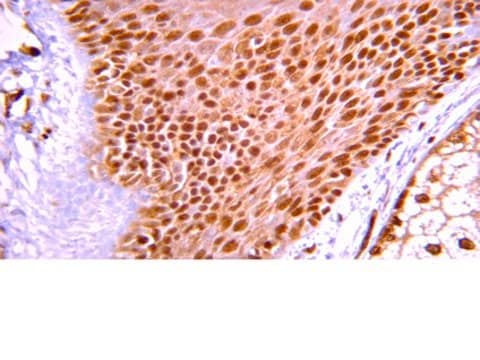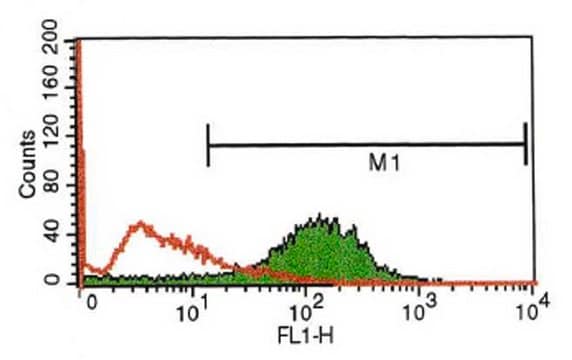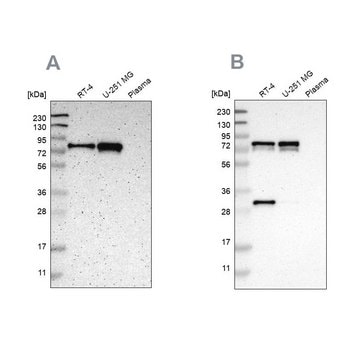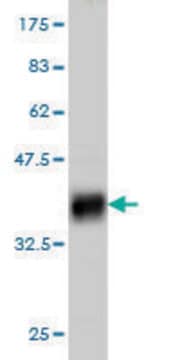06-1102
Anti-Protein patched homolog 1 Antibody
from rabbit, purified by affinity chromatography
Synonym(s):
PTCH protein +12b, PTCH protein +4′, PTCH protein -10, patched (Drosophila) homolog, patched homolog (Drosophila), patched homolog 1 (Drosophila)
About This Item
Recommended Products
biological source
rabbit
Quality Level
antibody form
affinity isolated antibody
antibody product type
primary antibodies
clone
polyclonal
purified by
affinity chromatography
species reactivity
mouse, human
technique(s)
immunohistochemistry: suitable
western blot: suitable
NCBI accession no.
UniProt accession no.
shipped in
wet ice
target post-translational modification
unmodified
Gene Information
human ... PTCH1(5727)
General description
Specificity
Immunogen
Application
Signaling
Quality
Western Blot Analysis: 0.1 µg/ml of this antibody detected Protein patched homolog 1 on 10 µg of human skeletal muscle, fetal tissue lysate.
Target description
Physical form
Storage and Stability
Analysis Note
Human skeletal muscle, fetal tissue lysate
Other Notes
Disclaimer
Not finding the right product?
Try our Product Selector Tool.
Storage Class Code
12 - Non Combustible Liquids
WGK
WGK 1
Flash Point(F)
Not applicable
Flash Point(C)
Not applicable
Certificates of Analysis (COA)
Search for Certificates of Analysis (COA) by entering the products Lot/Batch Number. Lot and Batch Numbers can be found on a product’s label following the words ‘Lot’ or ‘Batch’.
Already Own This Product?
Find documentation for the products that you have recently purchased in the Document Library.
Our team of scientists has experience in all areas of research including Life Science, Material Science, Chemical Synthesis, Chromatography, Analytical and many others.
Contact Technical Service








